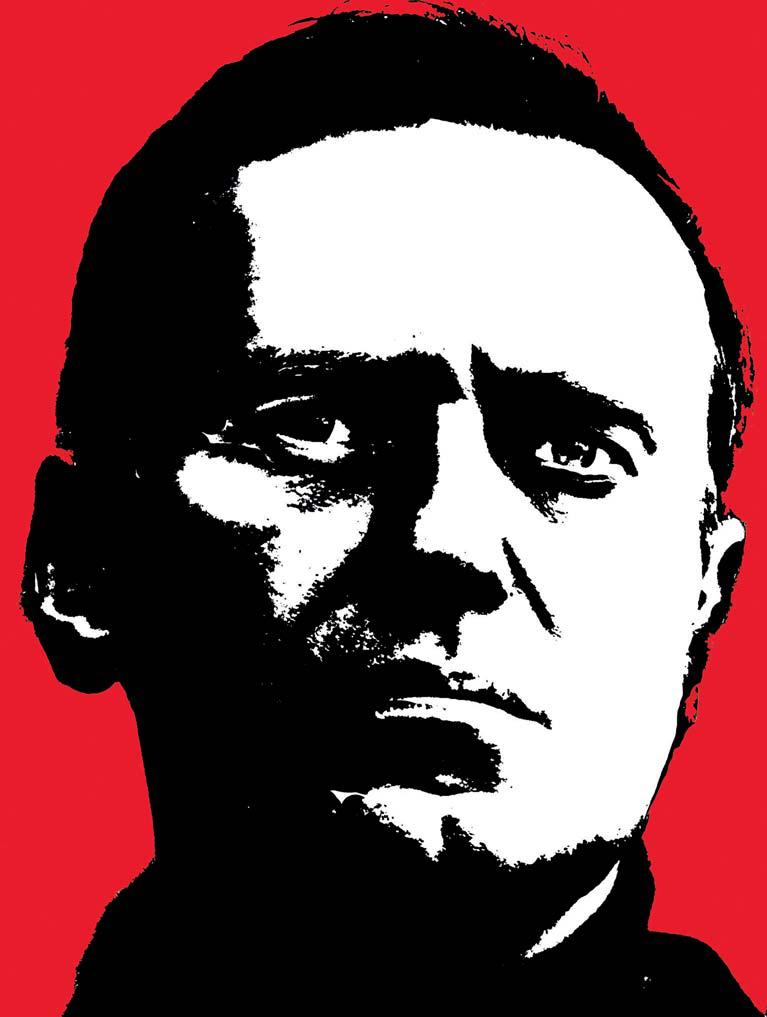
For years, Alexei Navalny remained clear on a key message: he was a Russian F opposition he was determined politician and to stay in Russia.
Exile, he believed, would lead to political irrelevance, and calling on Russians to oppose Vladimir Putin from the safety of the west would mark him as a hypocrite.
Navalny, who died last week aged 47, while serving a lengthy prison term in an Arctic penal colony, stuck to this belief as the political climate in Russia deteriorated and the space for dissent narrowed ever further, and even after he was poisoned with novichok in 2020, leading to his ill-fated decision to return early the next year.
Russian authorities had tried various methods to shut Navalny up for more than a decade. Initially, some in the Kremlin thought he could be allowed to remain on the political scene as a release valve for disgruntled urban Russians. A dangerously good performance in the 2013 Moscow mayoral vote put paid to that. Instead, authorities moved to launch various criminal cases against him.
In 2014, Navalny was put under house arrest and his brother, Oleg, was given a three-and-a-half-year jail term, widely seen as a way to put pressure on him. Some suggested he might be more use to the opposition movement abroad and at liberty rather than in Russia and potentially sent to join his brother in jail.
Late that year, padding around his small apartment in a Moscow suburb wearing an ankle tag, Navalny scoffed at the idea that it might be better to leave. "If I want people to trust me then I have to share the risks with them and stay here. How can I call on them to take part in protests and so on if they are risking things and I am not?" he said.
This story is from the February 23, 2024 edition of The Guardian Weekly.
Start your 7-day Magzter GOLD free trial to access thousands of curated premium stories, and 9,000+ magazines and newspapers.
Already a subscriber ? Sign In
This story is from the February 23, 2024 edition of The Guardian Weekly.
Start your 7-day Magzter GOLD free trial to access thousands of curated premium stories, and 9,000+ magazines and newspapers.
Already a subscriber? Sign In

The Saudi football World Cup is an act of violence and disdain
Well, that's that then. In the event there were only two notes of jeopardy around Fifa's extraordinary virtual congress last week to announce the winning mono-bids, the vote without a vote, for the right to host the 2030 and 2034 football World Cups.

AI has made the move into video and it's worryingly plausible
I recently had the opportunity to see a demo of Sora, OpenAI's video generation tool, which was released in the US last Monday, and it was so impressive it made me worried for the future.

With tyrant Assad ousted, Syrians deserve support and hope
Last week, time collapsed. Bashar al-Assad's fall recalled scenes across the region from the start of the Arab spring almost 14 years ago. Suddenly history felt vivid, its memories sharpened. In fact it no longer felt like history.

TV
The Guardian Weekly team reveals our small-screen picks of the year, from the underground vaults of post-apocalyptic Fallout to the mile-high escapism of Rivals

Albums
Murky love stories, nostalgic pop and an in-your-face masterpiece captured our critics' ears in 2024

Film
Visual language, sound, light and rhythm are to the fore in the best movies of the year

Hidden delights Our 24 travel finds of 2024
Guardian travel writers share their discoveries of the year, from Læsø to Lazio

'It's really a disaster' The fight to save lives as gang war consumes capital
Dr James Gana stepped out on to the balcony of his hospital overlooking a city under siege. \"There's a sensation of 'What's next?'. Desperation is definitely present,\" the Médecins Sans Frontières (MSF) medic said, as he stared down at one of scores of camps for displaced Haitians in their country's violence-plagued capital.

Trailblazers The inspiring people we met around the world this year
From an exuberant mountaineer to a woman defiantly facing the guns of war, here are some of the brave individuals who gave us hope in a tumultuous 2024

Votes of confidence
From India to Venezuela and Senegal to the US, more people voted this year than ever before, with over 80 elections across the world. With rising authoritarianism and citizen-led resistance revealing its vulnerabilities and resilience in the face of unprecedented challenges, has democracy reached its breaking or turning point?